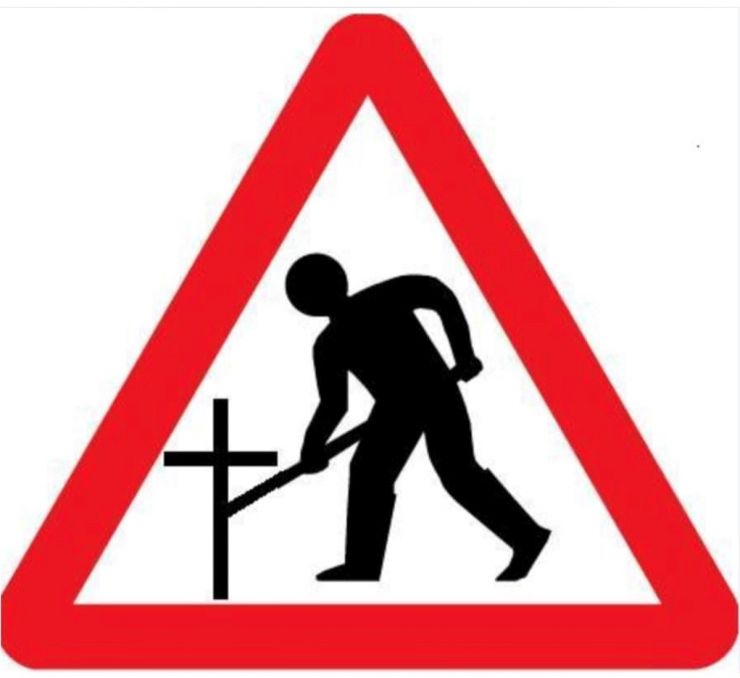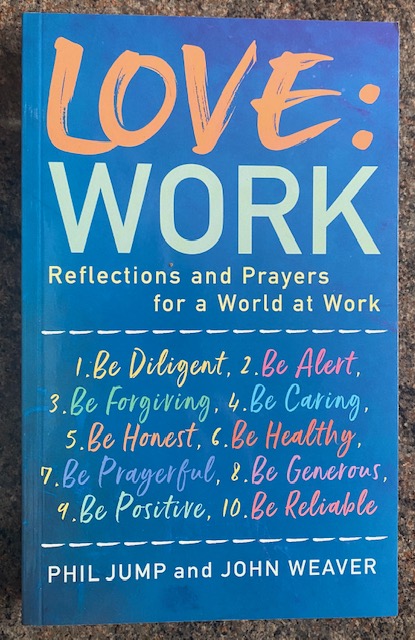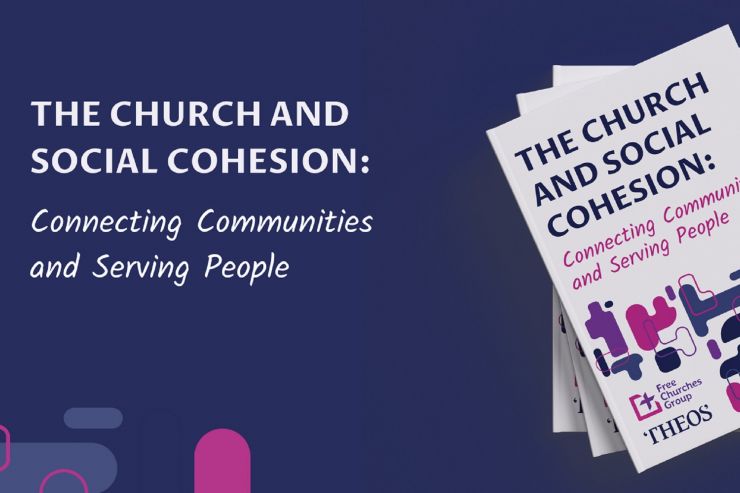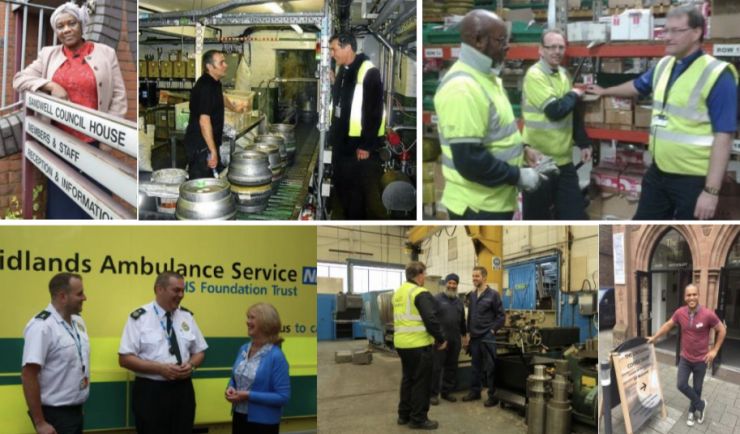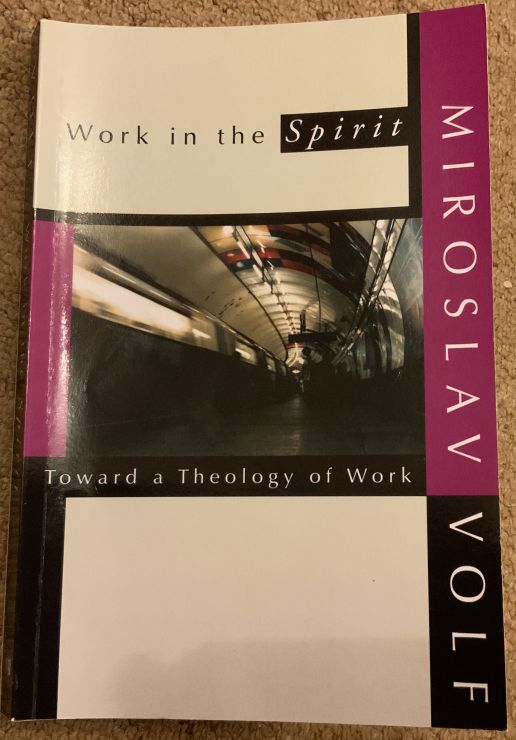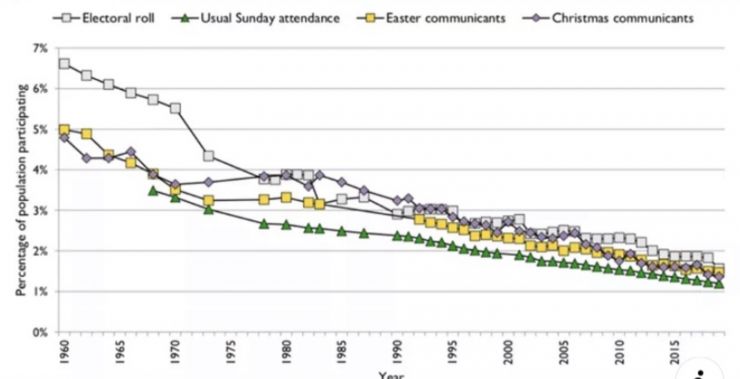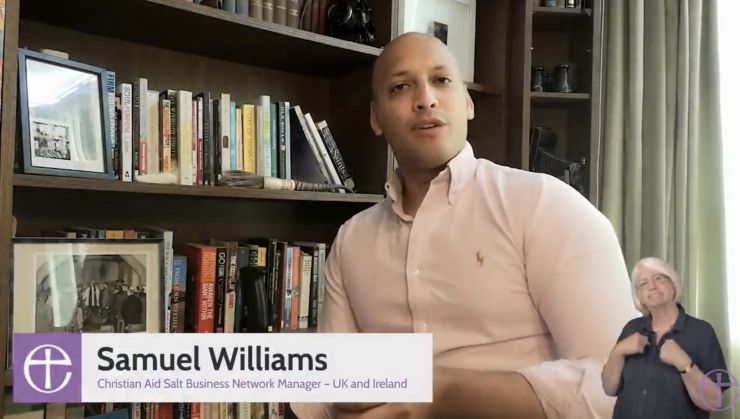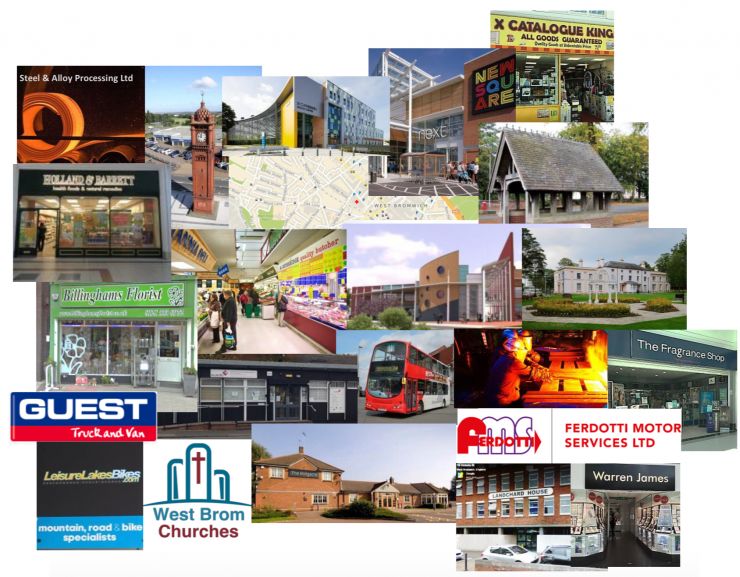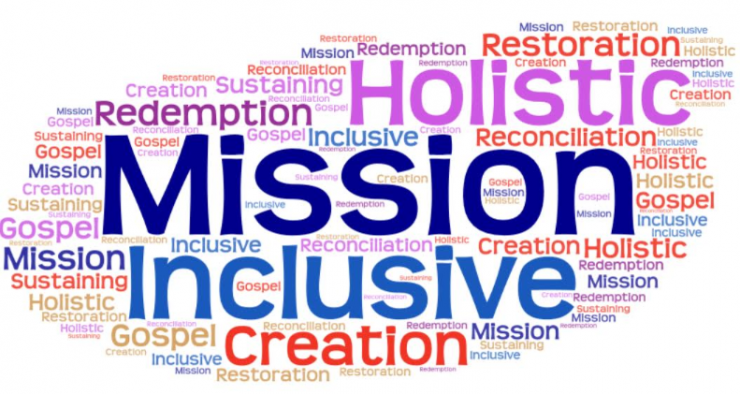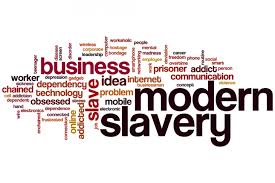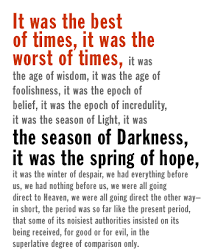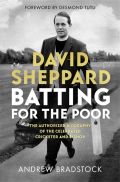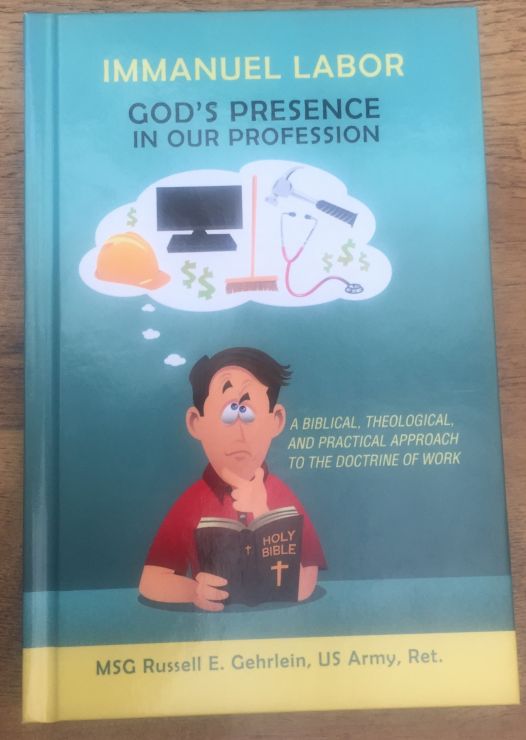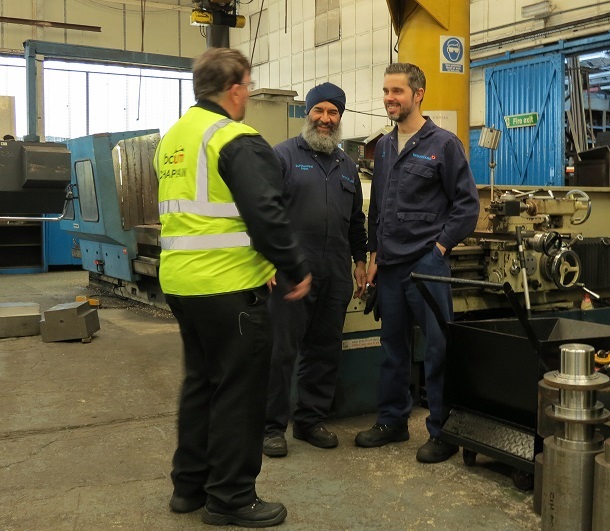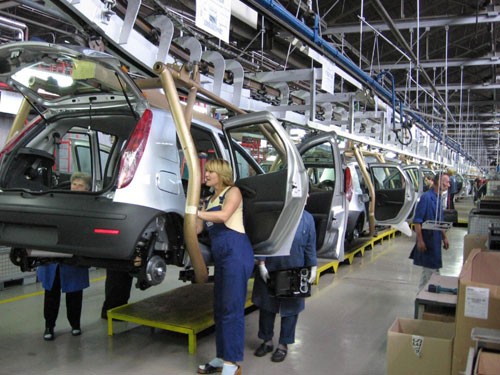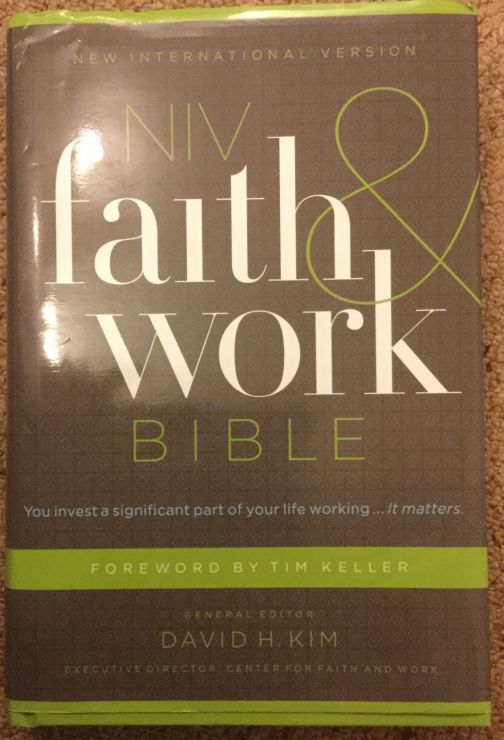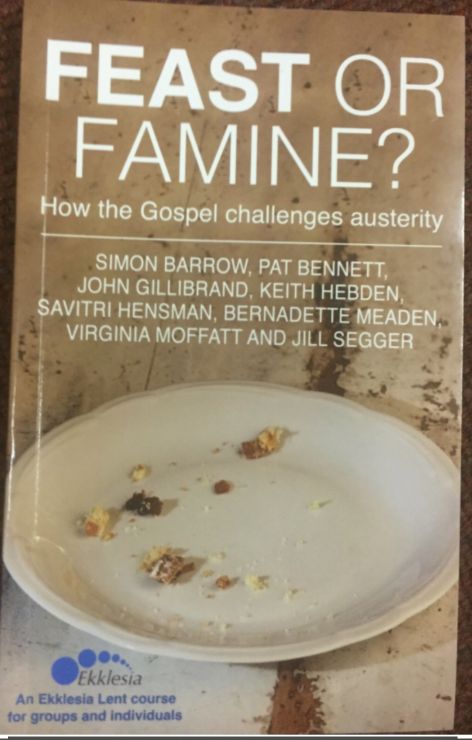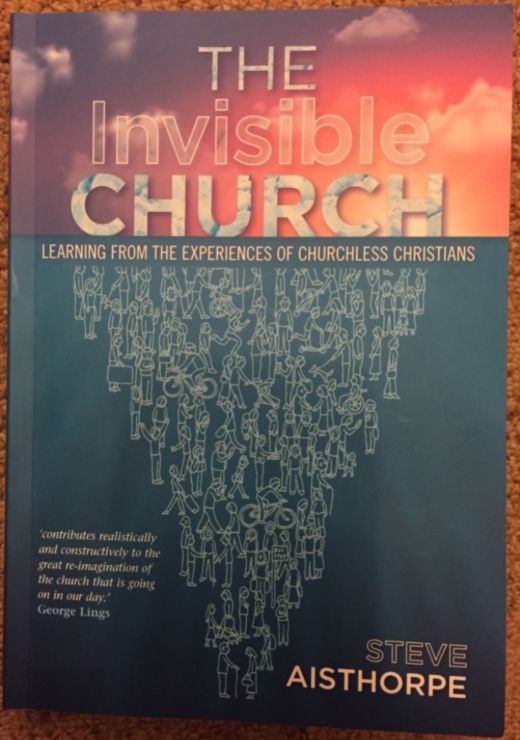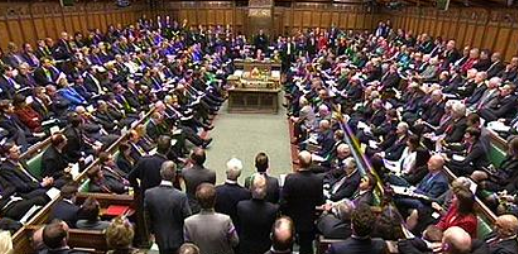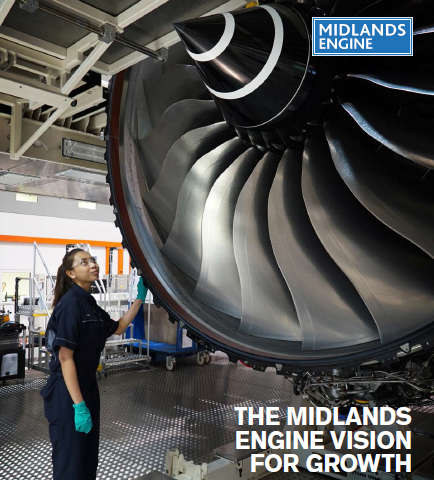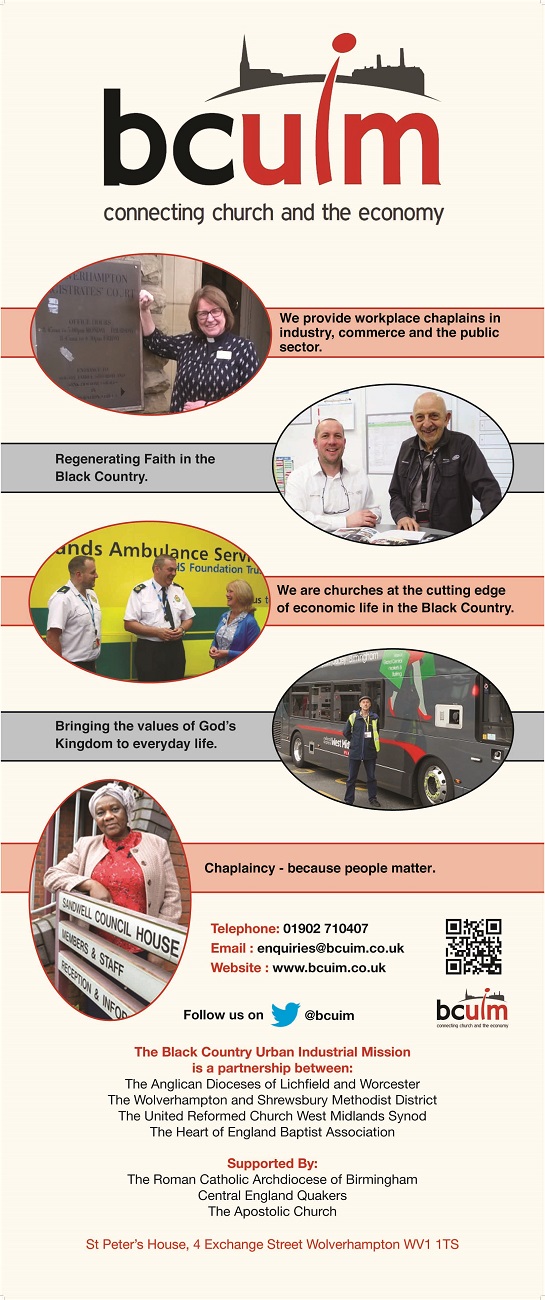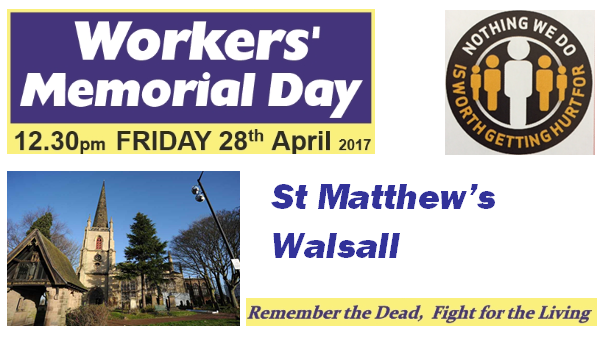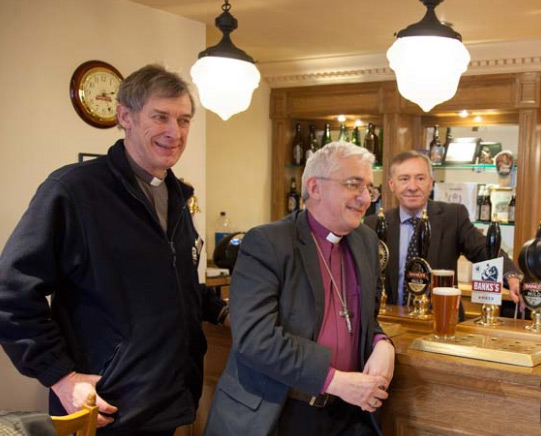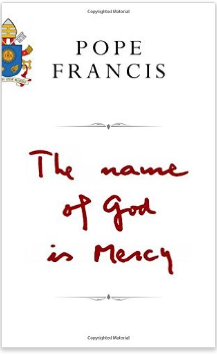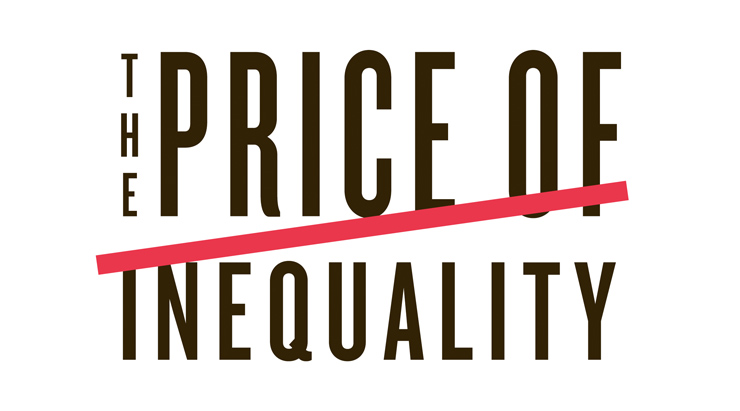We had just finished a tour of an advanced manufacturing plant, part of our annual Black Country Induction Course for clergy new to the area. The question suggested that the church leaders in our group expected their new ministries would have very little to do with the way their church members were earning their living. Or does it?
“As the love of God begins with us listening to his Word, so the love of our sisters and brothers begins with us learning to listen to them.” So wrote German Theologian, Dietrich Bonhoeffer, in his book, I Want to Live These Days with You which contains a year-long series of devotions which form part of my own daily reading. Bonhoeffer elaborates further on this when he says, “As well as giving us his word, God also lends us his ear. Thus, it is his work that we do for our brothers and sisters when we learn to listen to them.” For any chaplain these are words which are etched indelibly onto our hearts and minds. Yet after months of lockdown with perhaps only sporadic contact with those we normally engaged with previously, many of us are probably faced with having to almost go back to basics, to learn the art of listening again, but to also understand the impact of Covid upon ourselves, our ministries and the challenges that will bring both to ourselves and to those we serve.
A helpful resource for thos who want to see their workplaces transformed through the power of prayer.
When we use the term social cohesion it is usually associated with racial integration or assimilation by migrant communities into the host community. It is a term also used when during times of crisis, communities pull together across the racial, economic and cultural divide such as we have seen and continue to see during the COVID pandemic. The religious think tank Theos, recently published a report commissioned by the Free Churches Group* to provide an objective assessment of the contribution of the Church to social cohesion at a local level across England.** Between November 2018 and September 2019, Theos Researchers carried out over 300 interviews across fourteen local authorities as well as observing a range of local initiatives designed to promote social cohesion. The areas reflecting all the English regions were Bolton, Bradford, Bury, Cornwall, Croydon, Derby, East Lindsey, Haringey, Middlesbrough, Newham, Peterborough, Plymouth, Solihull and Thanet.*** In a pamphlet accompanying the main report, the Free Churches Group describe a cohesive society as one in which people trust, respect and understand one another beyond those groups they are normally associated or identify with, and where at local, regional and national level, communities work together facing shared challenges and celebrating shared achievements. Simply put, it is where people demonstrate love for their neighbour. The report makes a number of recommendations on those areas where Churches could, and in some cases should, be doing more to promote a cohesive society. However, I felt when reading through it particularly the executive summary, I got a sense of “we’ve been here before”, and there’s nothing actually new that isn’t already being done or tried elsewhere or, where there are too many variables which impact on the effectiveness or longevity of individual initiatives. From my experience much of the necessary groundwork for greater community outreach already exists through the various chaplaincies many of us are engaged in, especially those which are multi-cultural and multi-faith in nature such as hospitals, prisons, local authorities, public transport and the blue light services. Drawing on the conclusions and recommendations section of the report I will offer some examples where I believe Chaplaincy already provides the kind nurturing role Churches need to promote the principals of effective social cohesion. * The Free Churches Group comprises some 28% of congregations in England and Wales. Its membership includes the Methodist Church, Baptist Union of Great Britain, United Reformed Church, the Salvation Army, many Pentecostal groupings, and others not considered part of the Roman Catholic, Anglican or Orthodox Churches. **Madeline Pennington, The Church and Social Cohesion, Connecting Communities and Serving People (London:Theos,2020) ***Pennington, Church & Social Cohesion, pp.17-18
Chaplains venture into many different settings as disciples of Christ, representatives of God’s new creation fully involved in the world as it is now. There’s a tension here for us and for all Christians, but one that can be turned into prayer.
The Latin text used in the title was taken from a biography of Pope Francis by Austen Ivereigh called The Great Reformer: Francis The Making of a Radical Pope, in which Francis describes the differences between a Bishop who watches over his people (vigilia) as opposed to one who keeps watch for them (vela). In the context of Diocesan management watching over suggests a certain degree of control to maintain order and discipline, whereas keeping watch suggests hope, the hope of the merciful Father who keeps watch over what is in people’s hearts. As Workplace Chaplains we really fit best into the latter category of vela to keep watch, to try and understand how the people we minister to are dealing with the pandemic and its impact on their daily lives both in the home and the workplace and later perhaps, when we return to whatever our new normal will look like. As the whole of the UK enters another lockdown with even greater restrictions in the face of a new variant of COVID-19 which is up to 70% more transmissible until at least mid-February, how and where does Chaplaincy fit into the scheme of things? Given we are effectively back where we were last March, what are the implications for our collective and individual ministries in an even more uncertain future?
“Although there have been many popular books ... in the Christian understanding of work, this is the first scholarly effort to articulate a developed Protestant theology of work.”
The Church of England’s latest attendance statistics don’t make very positive reading. Are people losing interest in the church because for the most part it is saying nothing to the world in which we live?
A talk by Samuel P. S. Williams, Salt Network Manager, Christian Aid, part of the Church of England’s online service on 4 October 2020 Christian Aid’s Salt Business Network provides a unique opportunity to learn about, support and engage in building sustainable solutions for the world's poorest communities. https://www.christianaid.org.uk/get-involved/salt-business-network
Our colleague Jeff Guest posted a very thoughtful piece on the blog the other day containing a prayerful reflection on his ministry in West Bromwich and some of the issues he has encountered since returning to his duties. While some of us have progressively began returning to our old haunts and habits or have been using social media and emails to keep in touch with those we minister to, the easing of the lockdown and De-furloughing of staff to return to work and schools re-opening means that while workplace chaplaincy can tentatively begin again, we are likely to find much has changed and the new normal has a distinctly surreal feel to it. For myself I find great solace in expressing my inner most thoughts through the medium of prose or poetry, sometimes both. Here then are my tongue-in-cheek reflections on our new and likely unfamiliar ways of doing chaplaincy.
BCUIM has a Workplace Missioner and Chaplain visiting a wide range of businesses in West Bromwich. He has recently returned to work after a period of furlough. Here’s a letter with his prayers for the area he serves and loves.
A sermon about how our passions and interests, the things which energise us, including our everyday work, can come together with our skills, gifts and attributes, to be offered in God’s service.
Seventy-five years ago a new Prime Minister, Clement Attlee, declared that the need for charities would cease to exist as the state would provide everything. It may not have been quite the cradle-to-grave socialism espoused by Nye Bevan and others, but as a statement of intent it was partially carried through by among other things, the founding of the National Health Service and the launch of the Welfare State. Yet today in the midst of a global pandemic with the UK entering the sharpest recession since records began in 1955, over 113,000 job losses since March with retail and hospitality sectors among the hardest hit, unemployment now set to rise from the 3.9% rate in March before the lockdown to 11.7% by the end of 2020, it is not hard to see that the “recovery” will be a long and slow process. Can turning back the clock provide a way forward or do we embrace our new “normal” and adapt accordingly?
As Workplace Chaplains we are the public faces of BCUIM, our Churches and our respective faiths. The ancient Greek philosopher Aristotle, suggested that the art of public speaking (which is effectively what we do) is essentially the art of persuasion, and at its heart are the elements of Ethos (Credibility or Character), Logos (reason or logic) and Pathos (sympathy & empathy). As we begin to return to our respective Chaplaincies, we will find ourselves having to re-connect with our own audiences most of whom we haven’t seen for some considerable time. It is quite likely that we will come across those who have found their lives changed profoundly or those for whom an uncertain future beckons. How then can Ethos, Logos and Pathos help us to re-connect workplace chaplaincy with those with whom we serve in a Post-Covid world?
Industrial Mission groups, including BCUIM - “Connecting Church and the Economy” - have a unique perspective if we seek to build an economy which is fair and sustainable and inclusive after Covid-19
Industrial mission & chaplaincy play a part in the church’s mission in its fullest sense. Alongside other expressions of mission, they are a constant reminder to the church to grasp a holistic and inclusive vision of God at work in the world as creator, redeemer & sustainer.
At the lockdown eases and people begin to adapt to our new normal, West Midlands Police have issued a timely reminder of the scourge of modern slavery in our society. They have appealed for the public to be vigilant in helping to spot the signs and report their concerns. As Workplace Chaplains we are particularly well-placed to assist as we begin to re-commence our visits.
Last Sunday June 21st in addition to being Father’s Day was also Global MND Awareness Day. MND stands for Motor Neurone Disease and in the UK it’s known as Stamp Out MND Day. This is where campaigners and volunteers for people living with MND like myself, seek to raise awareness of a condition which while thankfully rare, is still lethal and where 50% of those eventually diagnosed usually die within two years. From a pastoral viewpoint when dealing with any such life-changing or life-limiting condition, there comes the inevitable question; “Where is God (or even faith) in all this?” How do we answer such questions, and what can we offer to those who are either living with such conditions themselves or caring for those who are? It is conditions such as MND and how we respond, which has provided the motivation behind this week’s blog posting.
The opening lines of A Tale of Two Cities describing the upheaval of the French revolution, is in many ways a fitting title with which to try and reflect on the state of our nation (and a world) almost a 1/5th of the way into the twenty-first century. As the literary world commemorates the author, journalist and passionate social reformer Charles Dickens on the 150th anniversary of his death, I thought this would also be a good time to reflect the role faith continues to play in determining whether we are really in the best of times or the worst of times.
This week is National Volunteers Week and we are rightly celebrating the efforts of all those who have given themselves selflessly, particularly during the Covid-19* crisis, to assist the vulnerable in their communities. But with more and more economic sector activity being allowed to re-start and with the likelihood of changed workplaces and practices emerging over the next few weeks, what role can workplace chaplains play in the post-covid world and how can this be communicated effectively as they too adjust to a changed environment? * Source: Patrick Butler, The Guardian, 13.04.20, A million volunteer to help NHS and others during Covid-19 outbreak
As restrictions begin to ease further and certain sections of the economy bring forward plans to restart business activity subject to appropriate safety measures being implemented, Churches and other places of worship are faced with another 5-6 weeks of lockdown. Is it now time to challenge Church (and other faith leaders) to lobby the Government to allow public access to our places of worship sooner rather than later?
In this first authorised biography we meet the man who exchanged a life of privilege and potential sporting greatness, to a life serving the needs of the poor and marginalised in the inner cities, becoming as famous for his achievements in the Church as on the cricket field.
Russell E Gehrlein’s book brings together wide reading, systematic thinking and extensive experience to produce a very readable “Biblical, theological and practical approach to the doctrine of work.l
As we being a cautious but phased approach to easing the lockdown and with the efforts of the NHS and other key workers rightly lauded in keeping vital sectors of the economy and society going, where and how does workplace chaplaincy fit into this equation now and in the future, given most of us were deemed non-essential at the outbreak of the crisis?
A recent survey suggests that one in twenty of us have begun praying as a result of the lockdown having not done so before. What difference can this make to Workplace Chaplaincy as we look to the exit phase of this crisis?
May 1st is observed as the feast of St Joseph the Worker. Bishop Tom Wright reminds us that everything we do in the present will, somehow, be part of God’s new creation.
The seventh century St Chad, who laid the foundations of Christianity in the midlands of England, offers a pattern for workplace chaplains today.
At the end of the year, I concluded nine years working with BCUIM. It was a good time to reflect. What had I been I doing for those years? Sometime in that period, the name of our national organisation changed from the “Industrial Mission Association” to “Workplace Chaplaincy Mission UK”. So, had it been “Industrial Mission” or “Workplace Chaplaincy”?
Colossians $; 5, 6 in The Message version offers some helpful points for chaplains. "The goal is to bring out the best in others in every conversation".
Why is it that, relating the Christian faith to the world of work, we so easily ignore the people who don’t have influence, the people who have the decisions made about them, and focus on the people who make the decisions?
Writing in “Christianity Today” (October 2018) Jeff Haanen observes “The theology of work conversation is thriving. Why are most workers missing from it?” “Today, when American evangelical leaders talk about work, the working class—which is two-thirds of the American workforce—is largely absent. What are we missing?”
Chaplaincy is a good fit in the public sector, where hope and vision help people to do a good job, even in times of austerity.
A book which brings together experience and practical theology, springing from the author’s conviction that ministering to people “outside the gates of our Christian community” is essential.
With 75 personal accounts of Christians integrating their faith and their work, together with essays and articles, this Bible is the ideal companion for anyone seeking to see their work as sacred, part of God’s purposes in His world.
Could a renewed focus on the working world, with chaplaincy, as a place of Christian discipleship and vocation, promote effective evangelism?
The reign of God is exercised over economics, business, industry, public service and the arts as much as it is over the church. Because of that, chaplains venture out into those areas from the church, with an incarnational ministry, as signs that the people involved in those activities are potentially undertaking something sacred.
The failure of the church to equip lay people for ministry and mission in the world of work is not new, and springs from a limited and individualistic theology
If the church is an army, are chaplains its "chosen men" (and women): agile, independent, responsive and perhaps a little undisciplined?
A review of an important book from the Ekklesia think tank, which challenges both austerity and its portrayal in many parts of the media.
A book that gives a voice to churchless Christians, challenges the church and offers a message of hope.
Governments will never be made up of saints, but we might hope for sinners who get up in the morning and ask themselves, “How can I improve the lot of ordinary people?”
Chaplaincy is a ministry of the local church, by the local church, for the local community
Free movement of goods, people and capital marked a period of peace, prosperity and celebration in the war torn Old Testament.
The Black Country is central to the Midlands Engine, which relies on international trade. The concept of trade and free movement of labour dates from biblical times, but will it survive Brexit?
Anthony Harris, Authorised Lay Minister at St Paul's Walsall reflects on his busy and rewarding work as Town Centre Chaplain
The Black Country Urban Industrial Mission is a long standing member of the Black Country Chamber of Commerce. It is part of "Connecting Church and the Economy" and means we attend networking meetings. People sometimes find it surprising.
Chaplaincy has a history of being a dynamic and vigorous expression of God’s mission! Chaplaincy has often happened independently from the local church, but now it is about local people responding to local needs.
A book which provides ample evident to support, "The love of money is the root of all evil." A well researched economist who references the Judaeo-Christian scriptures.
A passionate and compassionate analysis of poverty and the poor in Britain
Martin Dent, an inspiring, though little known, visionary, who co-founded Jubilee 2000, which led to the remission of billions of dollars of world debt.
A talk for Workers' Memorial Day 2017 at St Matthew's Walsall
Franklin D Roosevelt's New Deal, after the Great Depression, owed much to the committed Christian, Frances Perkins
Pope Francis' new book is a powerful call for the church to bring the mercy of God to a needy world - and a manifesto for chaplaincy
I was coming to the final pages of Joseph Stiglitz’s “The Price of Inequality.” One of the world’s leading economists. What solutions does he offer?
